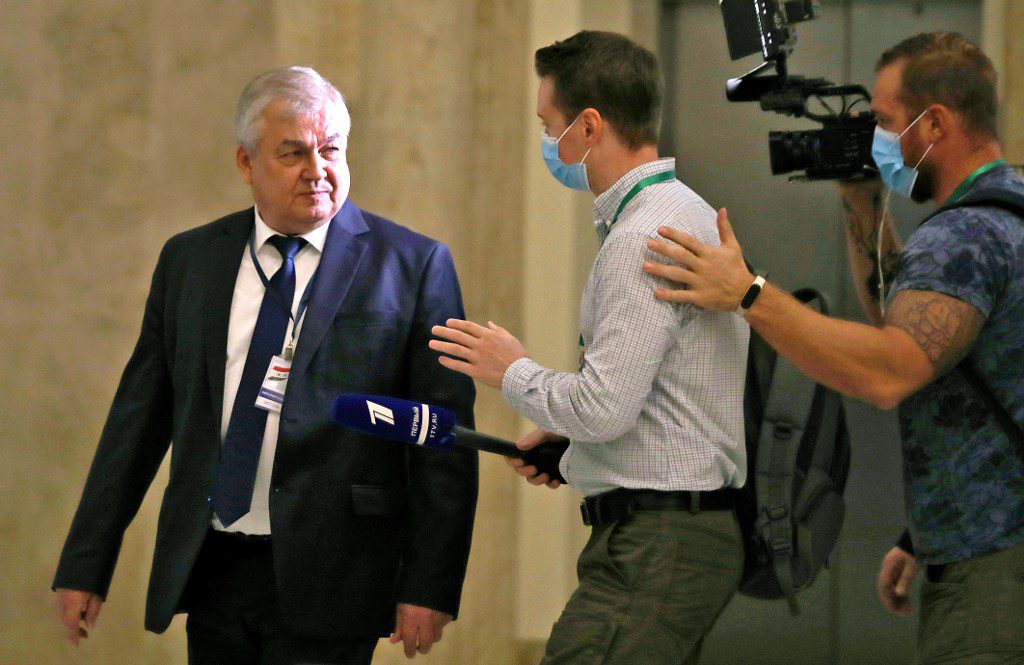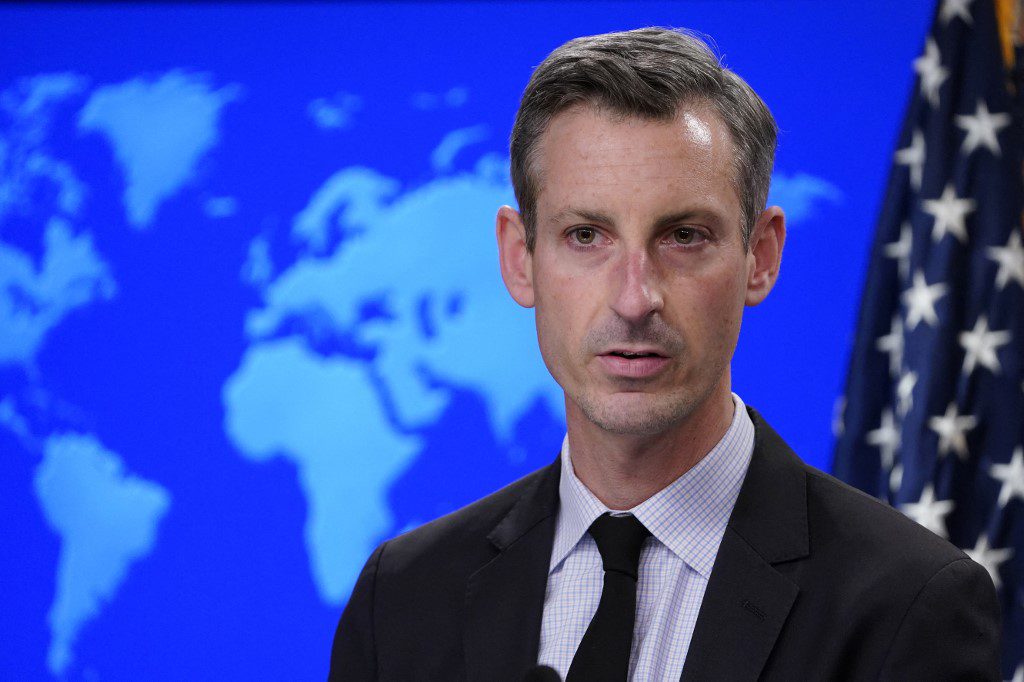
Hussein Alzoubi
It does not seem that the Arab diplomatic moves that started in December 2021 with the visit of the UAE Minister of Foreign Affairs Abdullah bin Zayed will end soon. In line with that context, the Omani Foreign Minister visited Syria in January 2022.
These moves followed an interview conducted by CNN with Abdullah II of Jordan. While indicating that “Bashar al-Assad and his regime will thrive in Syria for a long time,” the Jordanian King called for a coordinated dialogue with the authorities in Damascus.
This diplomatic activity cannot be interpreted apart from the rumours about attempting to revive the Assad regime after a dark decade that Syria has gone through and is still experiencing. Understanding political shifts in relations with Bashar al-Assad’s regime requires understanding the geopolitical circumstances of Syria. This country is drowning in the most complex conflicts, both in its centre and outskirts.
History and Geography
A bird’s-eye view of Syria is sufficient to detect conflict spots that have been ongoing for decades and may last for decades to come. In the southwest of Syria, there is the Palestinian cause. Lebanon in the west, with all its complexities that transcend its borders. To the east, Iraq has disputes and conflicts that start from Tehran and do not end in Riyadh. Also, in eastern Syria, there is oil. According to his statements, former United States President Donald Trump did not find anything more worthy of protection in Syria than its oil.
There are also hot spots in northern Syria. In the northeast lies the Syrian Democratic Forces and their conflict with Turkey, with a no peace and no war situation with the Syrian regime. On the other hand, there is a conflict between Kurdish identity and the Syrian one. In the meantime, Ghwayran prison in Al-Hasakah, which houses thousands of ISIS inmates, witnesses clashes between these forces and inmates. In north-western Syria, Idlib and its countryside are subject to Tahrir al-Sham. The armed factions loyal to Turkey control areas of the Aleppo countryside, turning the entire region into a human reservoir inhabited by about 4 million Syrians from the region’s residents, in addition to those who have been displaced from the other Syrian governorates.
The Syrian territorial waters, for which the Russian Empire fought eleven wars with the Ottoman Empire to gain access to “warm waters,” became a lake controlled by Russian ships. From these waters, Russian aircrafts tested 320 types of weapons since Moscow entered the war on the side of the regime in September 2015 in Syria, according to its Defence Minister Sergey Shoygu.
Attempting to bring the Syrian regime to life is inseparable from the interactions in the surrounding hotspots. In this context, the Emirati Foreign Minister Abdullah bin Zayed visited Damascus, as Gulf parties seek to expel Iran from Syria and thus meet the Israeli desire.
However, expelling Iran from Syria equates to the departure of the Afghani, Pakistani, Iraqi and Hezbollah Lebanese militias loyal to it, who supervise the Iranian marches in Syria. That means cutting off Iran’s striking arms in the region, which may end the Iranian dream of expanding to the shores of the Mediterranean. Perhaps one of its consequences, if it happens, will cost Iran its most crucial arena, Iraq, as the Iraqi people, in general, are rejecting the Iranian presence and its militias.
Perhaps this was evident from the demands of the revolutionary movement in Iraq and the burning of the Iranian consulate in Karbala and the headquarters of parties affiliated with Iran, which could happen again, as some observers would note.
Based on this perception, it is challenging for Iran to abandon the Syrian arena unless its exit from Syria is one of the attachments of the nuclear agreement deal expected to be finalized in the Vienna negotiations between Tehran and the West.

The Russian desire to get Iran out of Syria is no less than the Israeli one. In one day, Alexander Lavrentiev, the Russian special envoy for Syrian settlement, moved from Riyadh to Damascus. On that day, Lavrentiev met with Saudi Crown Prince Mohammed bin Salman and Syrian President Bashar al-Assad. These shuttle visits looked like an attempt to restore relations between the two countries.
According to Reuters, discussions focused on developments in Syria during the Riyadh meeting held on Jan. 20, 2022. On the other hand, the pro-regime news agency SANA stated that the meeting between Assad and Lavrentiev, which occurred on the same day, “revolved around the latest developments on the regional and international arenas and political issues of common interest with Moscow.”
The Russian move on the Riyadh-Damascus line is not the first of its kind. In a press conference with his Russian counterpart Sergey Lavrov in March 2021, Saudi Foreign Minister Faisal bin Farhan expressed Riyadh’s support for Syria’s return to its Arab surroundings. According to Bin Farhan, the solution “in Syria will only be a political one.” The Saudi Minister stressed that resolving the crisis in Syria requires the consensus of all parties involved in it.
Qatar in the Opposite Direction
Russian diplomacy in this file does not seem to have accomplished its mission. The Arab summit, scheduled to be held in Algeria next March, has been postponed so far, according to the Assistant Secretary-General of Arab League, Hossam Zaki, without revealing the actual reasons. However, the Syrian file is one of the apparent reasons for the postponement of the summit. Although he had significant support from both Cairo and Abu Dhabi, Ramtane Lamamra, the Algerian Foreign Minister, failed to persuade officials to accept returning Syria to the Arab League.
On Jan. 6, 2022, Qatari Foreign Minister Mohammed bin Abdulrahman al-Thani confirmed that his country is committed to preventing Syria’s participation in the Algiers summit. Al-Thani said: “We have not seen any progress or development in this regime’s behaviour, as it has not taken any serious steps to find a political solution.”
He added, “If this does not happen, then there is no logic in normalising relations with this regime. I do not think that we are in a position that allows us to let the Syrian regime attend the Arab summit. That was our stance, and we will maintain it. We hope that the Arab countries realise that these reasons still exist.”
Washington Stance

The United States criticised the visit of United Arab Emirates Foreign Minister Abdullah bin Zayed to Damascus. “As we’ve said before, this administration will not provide any support for efforts to normalise or rehabilitate Bashar al-Assad, who is a brutal dictator,” State Department spokesman Ned Price said.
Price asked countries in the region to consider Assad’s “atrocities” carefully. The senior Republican in the Senate Foreign Relations Committee, Jim Risch, had expressed his dissatisfaction with Abdullah Bin Zayed’s visit to Damascus on Twitter: “It is shameful that a growing number of countries are open to normalizing relations with Assad.” Jim Risch wrote. “The UAE and others that are ignoring the ongoing violence against Syrian civilians should work towards implementing UNSCR 2254 before taking any further steps toward normalisation.”
On the other hand, journalist Josh Rogin reported in the Washington Post that officials in the United States National Security Council acknowledged that the Biden administration “does not oppose the normalisation of Arab countries with the Assad regime, contrary to what the administration announces.” Rogin further questions the Biden administration’s endeavour to resolve the Syrian crisis and hold the Assad regime accountable for its crimes.
The former United States Ambassador to Damascus Robert Ford considered that the US “failed miserably in Syria,” pointing out that the possibility of the Americans toppling Bashar al-Assad “has dissipated.”
Andrew Tabler, a fellow at the Washington Institute for Near East Policy, agrees with Ford. Tabler believes that “the US is not trying to overthrow Bashar al-Assad neither under Trump nor now under Biden. But instead, Washington is trying to manage the Syrian crisis through incentives and concessions. But what is not clear is what Bashar al-Assad will do about these concessions and how will the Assad regime react while the US allows the purchase and transport of energy and gas across borders,” pointing out supplying gas to neighbouring Lebanon through pipelines that pass from Syrian territory.


